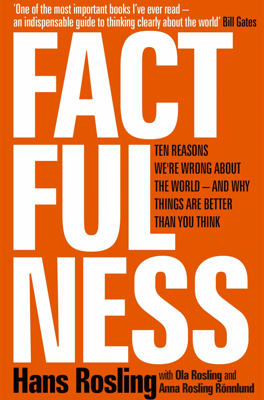Factfulness in Practice
A Life-Saving Moment in Congo
Hans Rosling recounts a tense situation in a Congolese village threatened by locals armed with machetes, mistrusting his medical intentions about blood samples for research on the disease, konzo. By calmly explaining the purpose and showing previous successes in disease research, a local woman defends the importance of his scientific study, exemplifying Rosling's principles of "Factfulness" by addressing the crowd's fears and misconceptions logically and persuasively.
Embracing Factfulness in Various Spheres
Education: Rosling advocates for a fact-based educational framework that keeps pace with global socio-economic realities. He emphasizes teaching students about global dynamics and critical thinking to navigate media bias and avoid dramatic instincts that skew perception.
Business: Addresses the critical need for businesses to adapt their strategies based on a correct understanding of global markets, particularly the growth potentials in Asia and Africa. He critiques the West-centric perspectives that are prevalent and urges businesses to realign their worldview to stay competitive in an evolving global marketplace.
Journalism and Politics: Rosling calls on journalists and politicians to update their worldviews, advocating for the media to incorporate historical context into reporting to help readers/viewers gauge the proportionality of news events. Despite the inherent challenges, he pushes for a more measured delivery of news to foster a more informed public.
Transforming Perception through Practical Tools
Dollar Street: Instead of traditional methods depicting cultures through stereotypical "folklore" images, Rosling suggests using tools like Dollar Street to portray the commonalities in living conditions across the globe based on income, fostering a more accurate understanding of global lifestyles.
Local Applications: Rosling emphasizes the importance of addressing ignorance at local levels within communities and organizations by fostering awareness of pertinent facts and encouraging perpetual learning and adaptability among adults.
Rosling's Closing Thoughts
Rosling reflects on his lifelong mission to combat ignorance and spread a factual understanding of the world. He sees the possibility of a worldwide shift to a fact-based perspective as both attainable and beneficial, comparing it to navigating life with an accurate map. This perspective, he argues, not only provides clarity but also reduces stress and hopelessness compared to a worldview mired in drama and negativity. Optimistically, he foresees the adoption of a more fact-based worldview as a foundation for continued global improvement and individual empowerment.
